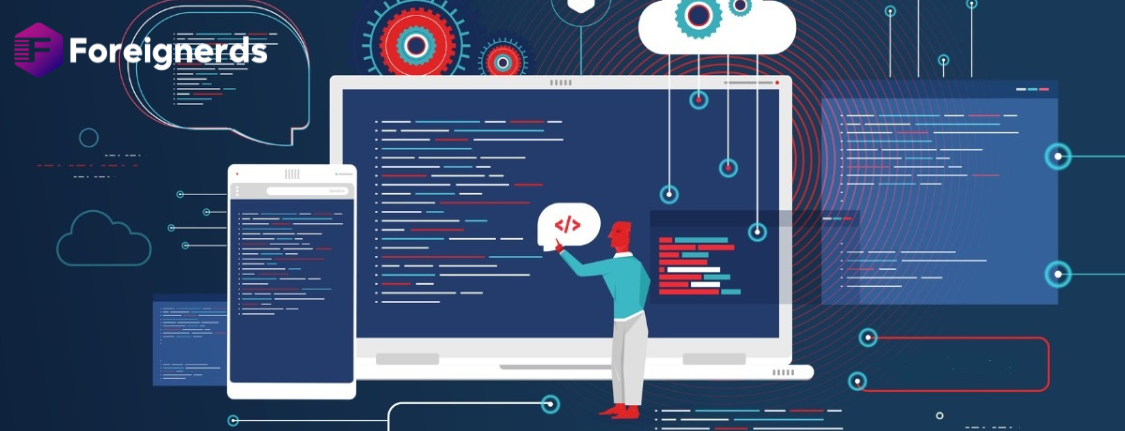- Home
- Design and Development
- Why Am I Seeing NGINX 502...

Maybe you’re already familiar with the feeling of suddenly encountering the infamous NGINX 502 Bad Gateway while comfortably working with PHP-FPM. Right, it is frustrating and quite confusing to see this disruption on your normally functioning web application. But don’t worry; you’re not the only one- this error often leaves both users and developers scratching their heads. In this article, we will help you understand the error in simple terms, delving into its technicalities and exploring how to fix it.
The NGINX 502 Bad Gateway is a rarely occurring error that prevents the user from interacting with a website. Therefore, it becomes crucial for website owners to take this issue as a priority and rectify it. When you see a message similar to “502 Bad Gateway”, it typically means that the server that was acting as a gateway did not receive a valid response from the other server or the upstream server.
The web requests of various PHP applications are processed through PHP-FPM. TCP/IP socket processes web requests, PHP-FPM works on interpreting the code, while NGINX only handles the HTTP requests.
It is important to make use of all these services since they individually contribute to enhancing end-user experience. The PHP-FastCGI Process Manager, together with the NGINX proxy server, is capable of increasing the website performance while significantly reducing resource consumption.
Though experiencing an NPINX error could be confusing, there are a few possible reasons why you might be seeing it.
One of the top reasons why you could be experiencing the 502 Bad Gateway error could be because NGINX is not up and running. Follow these steps to fix this issue:
The 502 Bad Gateway can also occur if the NGINX and PHP-FPM are not cooperating. In such a case, you can troubleshoot the issue by following these steps:
You likely see the message “The PHP-FPM timeout has expired” displayed on your screen. This message indicates that PHP-FPM took longer than the required time to execute a certain PHP script. This required time is mentioned in the config file as a timeout value. To resolve this issue, try the following:
One of the major reasons for this error is that the requests get blocked by a firewall. For a 502 Bad Gateway NGINX fix, try the following:
Quite a few times, the NGINX 502 Bad Gateway error is accompanied by a message stating, “Domain name is not permitted”. It indicates that NGINX received a request for a domain name that is either not configured or not allowed in the configuration file. Follow these steps to resolve the issue:
It is possible that the original server is down or there is no connection to it. It leads to the display of a 502 error message on the screen. It is also likely that your web server logs contain loading errors, making the code incompatible with the server configuration and version. In such a scenario, examine the software needs of the application and reconfigure the services accordingly.
In the complex world of web development, everything does not always run smoothly. Time and again, you will come across a website greeting you with a “502 Bad Gateway” error instead of some catchy tagline.
The codes ranging from 500 to 511 indicate that the issue lies with the servers, not the end-user. If a potential customer encounters any kind of error while visiting the website, it could harm the identity of a business and pose a serious blow to its brand value.
It becomes necessary to stay updated with the best practices of PHP-FPM and NGINX interactions or associate with a team of expert developers like Foreignerds, skilled in minimising such errors and improving the website performance. For a 502 Bad Gateway NGINX fix and more, visit our website to book a 15-minute, no-obligation consultation for free.
The NPINX 502 Bad Gateway error message indicates that a proxy server is unable to communicate with the upstream server. It could also occur when an upstream server sends no response or a malformed response due to which the NGINX server fails to connect to the backend server.
A message is usually displayed on the screen to inform the user whenever a website encounters this issue. This message can be mentioned as any of the following: “502 Bad Gateway NGINX”, “HTTP 502”, “HTTP Error 502-Bad Gateway”, “502 Service Temporarily Overloaded”, “Temporary Error (502)”, “502 Bad Gateway”, “502 Proxy Error”, or “Error 502”.
The website you developed could need 502 Bad Gateway NGINX fix, failing which will result in a bad user experience. Undoubtedly, websites are now the heartbeat of any business, and an error message can hurt the brand image. Though there is a high chance that 502 errors occurred due to a networking problem, website developers do everything they can to curtail any issues from their end.
Yes, it is possible that high web traffic overwhelms the proxy infrastructure or even the backend servers, resulting in the NPINX 502 Bad Gateway error being displayed. On encountering such a condition, it’s best to either change timeouts, optimize server resources, or make use of load balancers to handle the extra web traffic coming your way efficiently.
© 2013 - 2024 Foreignerds. All Rights Reserved